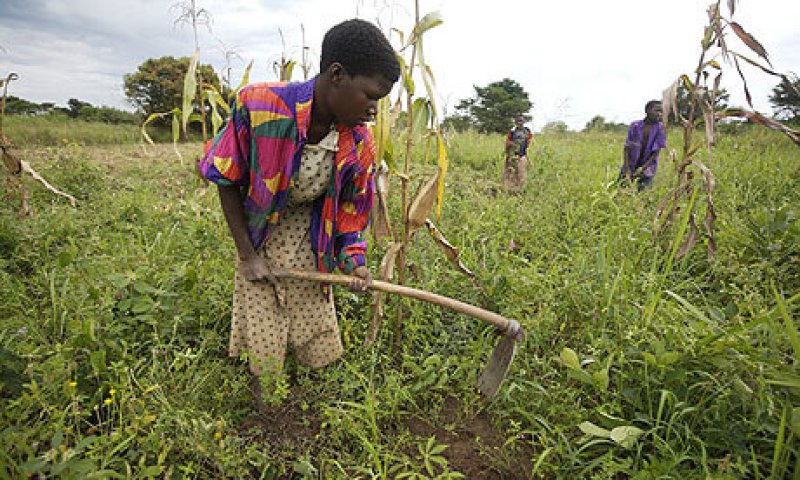The recent article, GM scaremongering in Africa is disarming the fight against poverty, published in the Guardian’s PovertyMatters Blog on 21 July 2014, is a thinly veiled attack on those of us in Africa and elsewhere who are deeply skeptical of the supposed benefits that genetically modified (GM) crops will bring to the continent. Based on a report by London-based think-tank Chatham House, it represents paternalism of the worst kind, advancing the interests of the biotechnology industry behind a barely constructed façade of philanthropy.
The report itself, compiled from an ‘expert roundtable’ and interviews with donors, policy-makers, scientists, farmers and NGOs (none of whom are identified), makes several erroneous and contradictory arguments concerning the lack of uptake or impact of GM crops in Africa. Firstly, with breathtaking arrogance, it dismisses the massive groundswell of opposition to GM crops emerging across the globe (including here in Africa) as a European-led phenomenon. It further credits lack of uptake to a concerted campaign of ‘misinformation’ by opponents of GM crops and onerous biosafety regulation, resulting in negative political judgments and a ‘treadmill of continuous field trials’.
The bottom line is that this is a fight for food sovereignty – for the rights of people to grow food that suits their environment, protects their biodiversity and serves their ability to eat foods that are wholesome and culturally acceptable. Policies must support systems of agriculture and food production that does not distort or damage local economies.
Read the full, original article: GM promoters promote poverty and dependency in Africa































